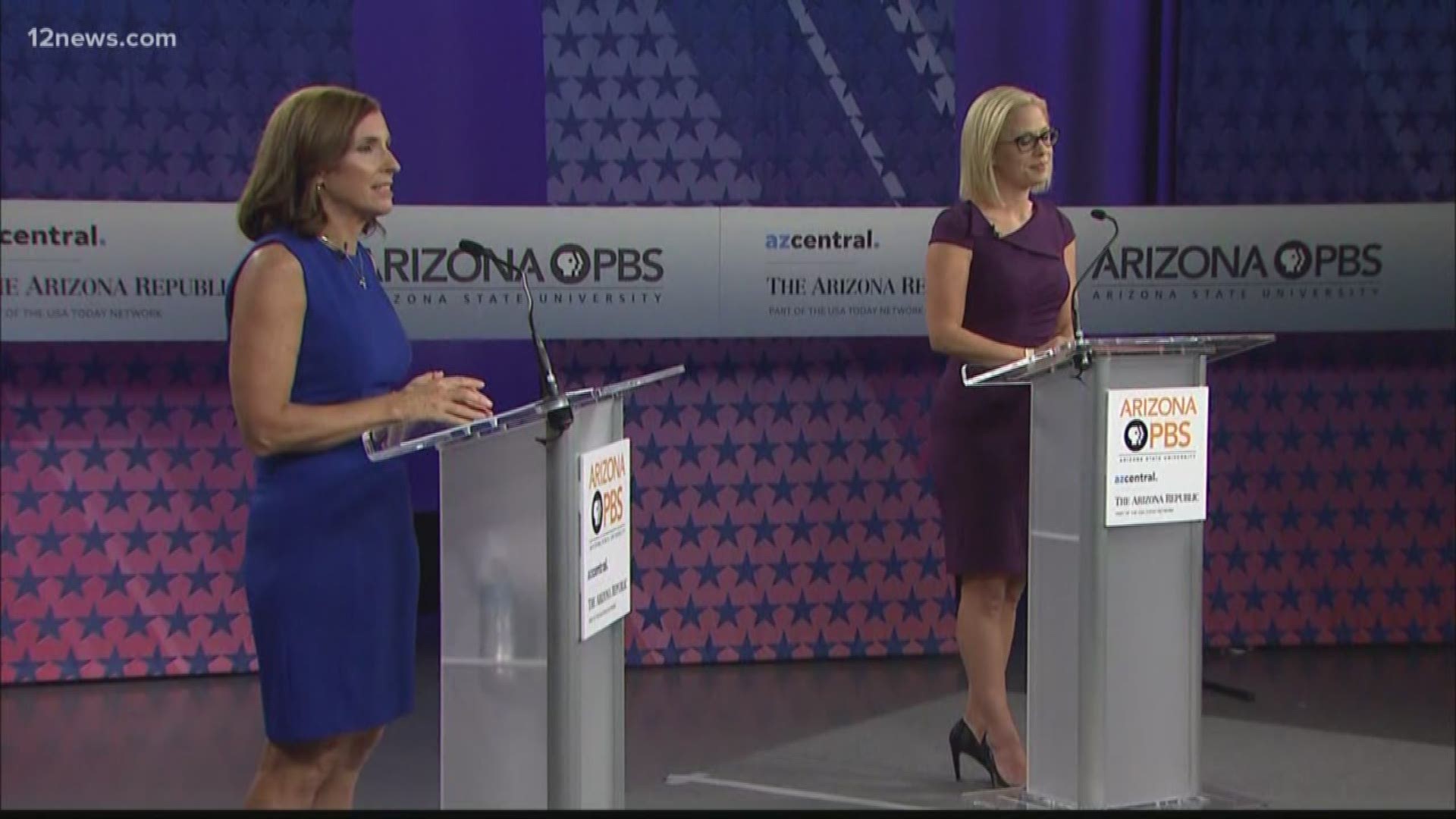Republican U.S. Senate candidate Martha McSally accused Democratic opponent Kyrsten Sinema of committing treason, based on a radio conversation 15 years ago when Sinema was helping to organize Phoenix protests against the war in Iraq.
McSally, a two-term Republican congresswoman from Tucson and retired combat pilot, dropped her bomb with just seconds left in the first and only televised Senate debate in Arizona.
"We are running out of time," moderator Ted Simons, an anchor with Arizona PBS, warned McSally as she veered toward an unannounced topic.
McSally was incensed by the absence of questions about veterans and the military during the 60-minute debate.
"I want to ask right now," McSally said to Sinema, "whether you're going to apologize to the veterans and me for saying it's OK to commit treason."
Sinema, a House member from Phoenix in her third term, responded, "Martha has chosen to run a campaign like the one you're seeing right now," as McSally interjected, "It's treason."
"She's engaging in ridiculous attacks and smearing my campaign," Sinema said. "She’s just trying to cut, cut, cut, and not show the full picture.”
In a scrum with reporters after the debate, McSally directly accused Sinema of being a traitor: "This is the definition of treason - saying it's OK for Americans to join our enemy."
McSally's donors have wallpapered Arizona TV screens with ads claiming Sinema was harming soldiers and helping terrorists when she protested the Iraq War 15 years ago, before her election to the Arizona Legislature.
McSally's treason accusation is based on an audio clip that CNN unearthed from 2003. Sinema was the guest of a radio talk show in Phoenix hosted by Libertarian gadfly Ernest Hancock.
The conversation contrasted their views of military intervention.
Hancock: "As an individual, if I want to go fight for the Taliban army, I go over there and I'm fighting for the Taliban. I'm saying that's a personal decision."
Sinema: "Fine. I don't care if you want to do that, go ahead." Sinema seemed to be dismissing the comment in order to get back on topic.
After Monday night's debate, the McSally campaign emailed reporters with another call for Sinema to apologize. The email included the legal definition of treason and punishment for the crime, either death or imprisonment.
Much of the debate was a back-and-forth battle over the candidates' votes on bills before Congress. Each candidate repeatedly accused the other of being misleading or outright lying about votes the other one cast, like this exchange on protecting Americans with pre-existing health conditions.
Sinema: "Martha voted to take that protection away."
McSally: "That is just a flat out lie. These are just classic fear tactics."
There were also sharp differences on the nomination of Supreme Court Justice Brett Kavanaugh:
McSally: "We have seen the mob rule in Washington, D.C. In the end, Arizonans wanted a 'yes' vote on Justice Kavanaugh."
Sinema: "The decision I would have made based on (Kavanaugh) lying under oath would have been to vote 'no.'"
This fall's Arizona Senate race, for the seat being vacated by Republican Jeff Flake, is smashing records for political spending on TV, at $42 million and counting.
The winner of the seat could determine which party controls the Senate.
Just 12 politicians - all men - have served as senators in Arizona's 106-year history. Sinema or McSally will be the state's 13th U.S. senator - and the first woman.

